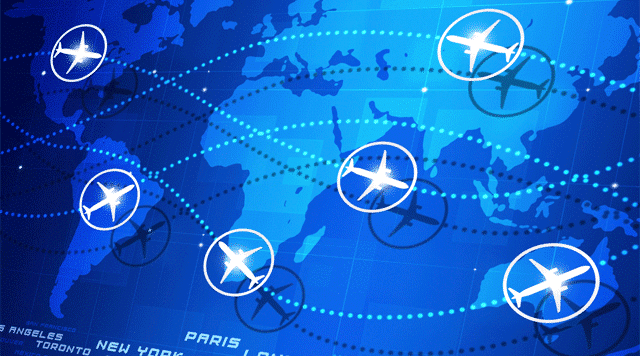HOW TO DEAL WITH JET LAG ?
You wake up in the middle of the night to have breakfast ? You rush to prepare yourself until you realize it is only 4 AM ? You may be victim of jet lag ! After hours spent flying and several time zones crossed, it is normal to have this kind of strange behaviors. Though it is not a severe pathology, jet lag can badly affect your holidays, especially if you need one week to reset your internal clock. But don’t worry, following some useful tips will help you overcome jet lag and fully enjoy your vacations !
WHAT IS JET LAG ?
Jet lag is a syndrome affecting most of the travelers, especially if they travel to a distant destination for the first time. Jet lag comprises all the bad effects caused on our organism by the disruption of our internal clock, which happens after flying through several time zones. Our body is living following a daily rhythm, punctuated by meals, sleep and periods of activity. When we travel to a place where the time is different, our organism can not match its daily habits with the external signals anymore (like day and night) and jet lag occurs. The usual symptoms of jet lag include insomnia, frequent awakenings at unusual times, fatigue, daytime somnolence, headaches, digestive disorders and irritability. However, we are not all equal when it comes to jet lag, and some people have more difficulties to adapt to a new time than others. Note that the effects of jet lag are worse when traveling on a long distance to the East.
PLAN YOUR TRIP AHEAD TO REDUCE THE EFFECTS OF JET LAG
Gradually preparing your organism during the week before your departure can help reduce the undesirable effects of jet lag.
- Move your clock forward (or backward) by one hour every day to progressively match the time of your destination. This will help you to gradually adapt to this new time.
- You can also delay (or advance) the time you go to sleep and the time you wake up by half an hour every day.
- Before your departure, rest a lot to avoid accumulating fatigue. It is important to have a good night of sleep the night before your departure.
- Don’t drink alcohol or stimulating beverages (such as coffee, tea and soft drinks containing caffeine) before your departure and during your flight. Also avoid consuming food and drinks containing a high percentage of vitamin C, as well as eating large and heavy meals.
- Set your watch to the time of your destination as soon as you board the plane.
- In the plane, try to rest as much as possible.
GIVE YOUR ORGANISM SOME TIME TO ADAPT AFTER YOUR ARRIVAL
After your arrival, you will have to give your organism some time to adapt to your new time zone. To help your body adapt faster :
- Avoid sleeping immediately upon arrival. If you are too tired, take only a short nap.
- Limit sun exposure in the evening during the first days of your holidays.
- Take melatonin before going to bed, this will help your body to easily get to sleep. Melatonin is a natural hormone secreted at night by the brain and influencing our biological rhythm. If you can not sleep, don’t take sleeping pills containing benzodiazepines, as they would only make things worse.
- Adapt yourself to the local time as soon as you arrive by immediately adjusting your sleeping and eating times.

